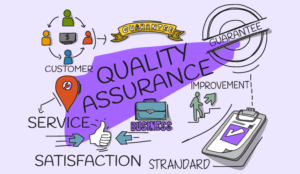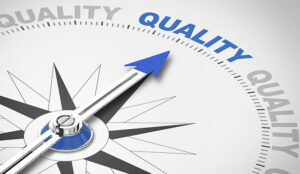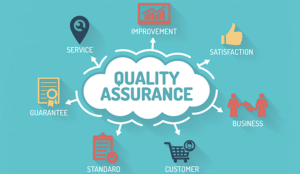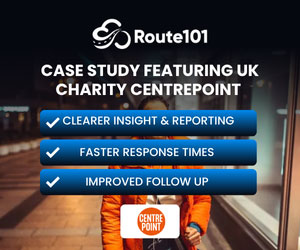Dick Bourke defines the tactical call centre quality assurance framework, discussing how to make the step from operational to tactical.
In sports, tactics are plans made before the start of a game, to play against your opponent’s weaknesses and to your team’s strengths.
Yet we prefer the more managerial definition: tactics are the actual means used to gain a business objective.
What we mean by a ‘QA Framework’ is the success criteria and metrics set by the business based on an understanding of the customer service goals, processes and tools employed to measure and manage the quality of service delivered on a day-to-day basis.
Evolving Your Call Centre QA Framework: From Operational to Tactical
As a call centre grows in size there is a realisation that there is a need for a basic operational Quality Management framework to deliver consistency and help agents understand what is required of them.
As the operation matures and the operational basics are in place the benefits of a solid QA structure are better understood by the business.
Now that the relationship between quality service and business success is more visible, most organisations begin to think about using QA as a tactical management tool.
How does a tactical QA framework differ from and complement operational and strategic frameworks within this the complex multichannel service delivery model that is the modern call centre?
Where an operational call centre QA framework is concerned with short-term processes and workflow decision-making, tactical frameworks address the medium-term business goals tailored by channel.
Tactical QA inherently has more flexibility than an operational framework in that it takes a medium-term view designed to ‘move the quality needle’, whereas a strategic QA framework is directly tied to long-term organisational objectives.
What It Means to Have a Tactical QA Framework Approach
As businesses, and by extension the supporting call centres, mature they naturally evolve from operational to tactical to strategic frameworks.
To clarify, we must recognise that as they mature, all centres (there are upwards of 45,000 in the US alone) will need to align (at least some aspects of their business) with a tactical QA framework approach.
Specifically, a call centre taking a tactical QA framework approach is typically focused on the following more changeable aspects of measuring call centre success:
- QA goals more often than not reflect medium-term business goals
- QA is used as a method for identifying process or service improvements which are then adopted and implemented
- QA processes, workflows, and wins are used to sell business
- QA evaluations are pushed to agents in real time
In the midst of so much call centre technological innovation, with strides in artificial intelligence, live chat, social media customer service efforts, and mobile-readiness, call centres must be fast to adapt.
After all, customer expectations are exceedingly high and getting higher.
In this 10 Predictions for 2017 study by Brainfood, consultant Martin Hill-Wilson points out that a growing proportion of customers agree or strongly agree that a business should respond or be available 24 hours a day, seven days a week.
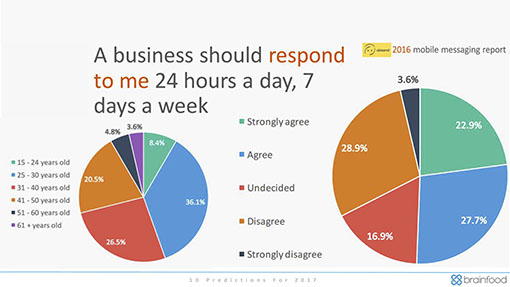
It may be useful to keep this in mind as we review call centre QA tactical frameworks and look towards a larger goal-oriented picture.
A Tactical Thought Process
Moving from operational to tactical means the internal conversation has to change.
The diagram below illustrates the typical thought process that you need to go through when redesigning your QA framework.
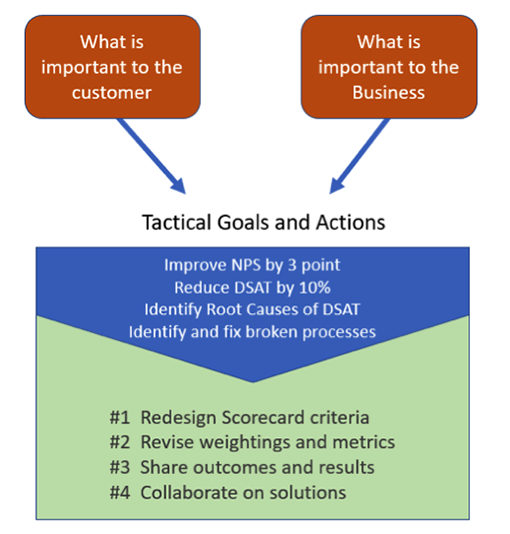
Understanding Call Centre QA Tactical Goals
More in-depth than operational call centre QA goals, tactical goals are much more focused on growth and scalability than on processes and workflows, for example.
#1 Improve Client Retention
Not only does a tactical framework demand consistent service delivery, but a level of quality service that results in higher client retention.
#2 Reduce Staff Churn
Reducing staff churn saves on invested time and dollars in staff training and development, and ultimately assists in maintaining a healthy client retention rate.
A tactical framework points to call agent self-scoring as a method of getting to the root cause of an issue (see #4), while empowering employees with self-awareness and a weighted say in why and how a call succeeds or fails.
As expressed in a case study with Voxpro, staff agents tend to be more motivated when data measures success against more specific KPIs and can more fluidly inform direction shifts towards meaningful goals.
#3 Identify Knowledge Gaps
With an ability to look and see beyond the day-to-day process, a tactical framework lens enables QA leaders and others to do the job of using metrics to pinpoint specific knowledge gaps.
These gaps may be found in the call centre employee knowledge base, or reach as far as enterprise-wide product and service issues.
Tactical frameworks begin to open this communication channel so that call centres can function as a more holistic part of the client’s business by identifying knowledge gaps and raising trending call concerns through the ranks.
#4 Look for the Root Causes of Poor Service
Rather than merely identifying poor performers based on somewhat subjective data points, a tactical call centre QA approach digs deeper into identifying and understanding the true root cause of poor service.
With a focus on the quality of the service rather than on the individual performer, the idea is to strengthen and empower employees through coaching and progress, ultimately reducing staff churn and improving the customer experience.
#5 Report on Trends
With a focus on month-over-month, or year-over-year data, tactical pivots can and should be made.
By collating trending data as opposed to one-off data points or subjective data collection, QA managers can make more informed decisions.
Call Centre QA Tactical Frameworks at Work: A Voxpro Case Study
A firm that has shifted to a QA tactical framework is illustrated in our customer example and Voxpro case study.
Voxpro is a well-established, award-winning call centre with a global influence and high-profile clients, including Google, Stripe, and Airbnb. Voxpro was looking for a solution to its data fatigue.
They were challenged by a lack of time and resources to analyse and correctly interpret large volumes of QA meta-data.
The end goal at Voxpro was to evolve from an operational (process and workflow-oriented) framework to a framework that is tactical (changeable and flexible).
The Voxpro plan involved working to:
- Obtain a unified QA dashboard view of all pertinent analytics
- Gain the ability to analyse the data in real time
- Implement new concepts of self-scoring and self-awareness for call centre agents.
With these tactical goals at the fore, Voxpro identified exactly how a streamlined data solution could help them grow and improve.
This is a solid outline for any call centre also suffering from an abundance of meta-data and interested in evolving toward a tactical or even strategic way of doing business.
The Voxpro success story continues with increased growth, higher customer satisfaction (CSAT) scores, and reduced employee churn, as well as root cause identification.
Kieren McCarthy, Head of Quality at Voxpro, summarises his team’s tactical QA framework success and how he plans to build upon this into a strategic framework.
Next Steps: From a Tactical to a Strategic QA Framework
In the Voxpro case study example, we learn how flexible, medium-term business goals led to greater client retention and higher CSAT scores while improving employee turnover.
Pockets of value are uncovered by identifying knowledge gaps and taking action to improve communications.

Dick Bourke
Even QA processes begin to be less cumbersome as metrics shift to a call centre agent self-scoring process.
Evolving from a catch-as-catch-can approach within an operational framework of process and workflows, heading to a more tactically influenced mindset opens significant opportunities for continued growth through a strategic framework, which is the next topic in this blog series.
Author: Robyn Coppell
Published On: 14th Sep 2017 - Last modified: 18th Mar 2024
Read more about - Guest Blogs, Martin Hill-Wilson, Quality, Scorebuddy, Videos







